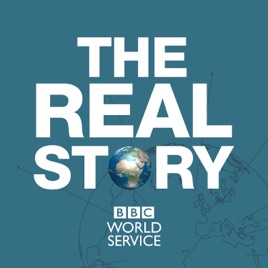
Advertise on podcast: The Real Story
Rating
4.6 from
Categories
Country
This podcast has
300 episodes
Language
Publisher
Explicit
No
Date created
2015/07/17
Average duration
49 min.
Release period
9 days
Description
Global experts and decision makers discuss, debate and analyse a key news story.
Social media
Check The Real Story social media presence
Podcast episodes
Check latest episodes from The Real Story podcast
Getting ready for an older population
2024/02/23
The population of the world has been rising for over 200 years but some time later this century it’s predicted to peak. Demographers don’t know exactly when that will happen but they do know that we are already experiencing a demographic transition. Fertility rates are falling world wide. Fertility in China and India is below replacement rate. In developed countries populations are ageing; since 2013, a quarter of Japan’s population has been over 65, and within the next five years Japan will be joined by Finland, Germany, Italy, and Portugal. It’s easy to see ageing as a problem. After all, how will working age people fund the pensions of so many old people? But could technology massively raise productivity? Could falling populations put less stress on the planet, and offer us a world with less competition and more leisure and space? And if an older population is a problem, how to solve it? Can we encourage people to have more children? Or should rich countries let in more people? Shaun Ley is joined by a panel of experts:
Jack Goldstone - Professor of Public Policy at George Mason University in Virginia, in the United States.
Elma Laguna - Associate Professor of Demography and Director of the Population Institute, College of Social Sciences and Philosophy, University of the Philippines, Diliman.
Frank Swiaczny - Senior Researcher at the Federal Institute for Population Research in Germany and Executive Director of the German Society for Demography.
Image: An elderly man holding a walking stick. Credit: Joe Giddens/PA Wire
more
Is Senegal’s democracy under attack?
2024/02/16
President Macky Sall of Senegal is facing mounting pressure after the decision to postpone the scheduled 25 February presidential election to December. The opposition says the move is a “constitutional coup” but the president says more time is needed to resolve a dispute over who is eligible to stand as a presidential candidate after several opposition contenders were barred. Last week, three people were killed and hundreds arrested in protests against the delay of the election. Senegal has long been seen as one of the most stable democracies in West Africa. It is the only country in mainland West Africa that has never had a military coup. It has had three largely peaceful handovers of power and never delayed a presidential election. But is that about to change? And what will the consequences of any political, social and economic turmoil for a country with a young population? Shaun Ley is joined by a panel of experts:
Borso Tall - Freelance journalist based in the Senegalese capital Dakar, recipient of the Chevening scholar with The University of Glasgow and member of The International Women's Media Foundation.
Paul Melly - Consulting fellow for the international affairs think tank Chatham House and a journalist specialising on development, politics and business issues in francophone Africa.
Aanu Adeoye - West Africa correspondent for the Financial Times.
Also in the programme:
Dr Ndongo Samba Sylla -An economist who served as an adviser in the president's office.
Image: Senegalese demonstrators protest against the postponement of the Feb. 25 presidential election, in Dakar, Senegal February 9, 2024. Credit: Reuters/Zohra Bensemra
more
Do green policies and farmers have to clash?
2024/02/09
Europe has been swept by a wave of protests by farmers, many of whom blame environmental policies for increasing their hardship. In Germany, farmers are angry about the phasing out of tax breaks on agricultural diesel. A policy aimed at reducing pesticide use was one of many grievances fuelling demonstrations in France, Belgium and the Netherlands - prompting the EU to backtrack on the policy. But farmers are worried about more than just pesticide use. From measures to increase biodiversity and soil quality to increased competition from cheap imports, the agricultural sector across Europe - and the world - is feeling the strain. So, can farmers and the environment both prosper? If so, which policies will help encourage a green transition and who will pay for it? Shaun Ley is joined by a panel of expert guests.
Natasha Foote - A journalist and podcaster focusing on European agriculture and farming policy
Paula Andrés – Agriculture and food reporter for Politico Europe
Julia Bognar - Head of land use and climate at The Institute for European Environmental Policy think tank
Also featuring:
Christiane Lambert – A pig farmer and President of the European farmers’ lobby COPA-COGECA
Tom Vandenkendelaere - A Belgian member of the European Parliament for the Flemish Christian Democrat CD&V party / European People’s Party (EPP)
Bas Eickhout - A Dutch member of the European Parliament for the Greens / European Free Alliance
Producers: Zak Brophy and Paul Schuster
Image: A placard on a tractor reads 'No farmers, no food' during a protest by farmers in downtown Barcelona, Spain, 07 February 2024 - Credit: Enric Fontcuberta/EPA-EFE/REX/Shutterstock
more
China’s economy: How worried should we be?
2024/02/02
China has tightened financial industry rules as it tries to halt a deepening sell-off in the world's second largest economy. Nearly $6tn has been wiped off Chinese and Hong Kong stocks over the past three years. Meanwhile a court in Hong Kong this week ordered the liquidation of debt-laden Chinese property giant Evergrande. Youth unemployment in China is thought to be around 20%. So, what’s the real state of China’s economy? Some analysts say a crackdown on commercial technology companies has harmed growth. Is it possible for the Chinese Communist Party to enjoy the benefits private enterprises can deliver, while still retaining the control it wants to have over the economy? Shaun Ley is joined by a panel of experts.
Stewart Patterson - Co-founder of an investment management firm in Singapore, author of 'China trade and power: Why the West's Economic Engagement Has Failed' and research fellow at The Hinrich Foundation.
Nancy Qian - Professor of Economics at Kellogg Business School, Northwestern University, Illinois
Yu Jie - Senior research fellow on China in the Asia-Pacific Programme at the independent policy institute, Chatham House
(Photo: A man sells food in his street booth in Shanghai. Credit: Alex Plavevski/EPA-EFE/Rex/Shutterstock)
more
Will artificial intelligence erode our rights?
2024/01/26
Artificial intelligence is increasingly impacting all of our lives. Proponents say the technology has the potential to cure diseases, reduce hunger and free up leisure time by improving productivity. But others worry it will destroy our privacy, undermine our democracies and increase inequality. So, how can we ensure AI delivers the maximum benefits while protecting our individual rights? The European Union is leading the way in attempts to regulate the emerging technology and hopes its AI Act will serve as a blueprint for others. What is the future of AI and how can we make sure it works for us, not against us?
Shaun Ley is joined by Scott Niekum, associate professor and director of SCALAR, the Safe, Confident, and Aligned Learning & Robotics Lab in the College of Information and Computer Sciences at The University of Massachusetts, Amherst; Karen Hao, a journalist and data scientist who writes about Artificial Intelligence for the US magazine, The Atlantic; Prof Philip Torr, a specialist on AI at the University of Oxford and a fellow of both the UK's national academy of sciences, The Royal Society and the Royal Academy of Engineering.
Also in the programme: Dragoș Tudorache, a member of the European Parliament involved in crafting the EU's AI Act.
(Photo: People attend the launch event of the first commercial application of artificial intelligence for the mining industry in Jinan, Shandong province, China, 18 July 2023. Credit: Mark R Cristino / EPA-EFE/ REX/Shutterstock)
more
The changing face of Taiwan
2024/01/19
Taiwan’s voters have chosen pro-sovereignty candidate William Lai as their next president, a result which has angered China. It means Mr Lai’s party has secured an unprecedented third consecutive presidential term at a time when the Taiwanese people are debating how best to deal with Beijing. China has claimed sovereignty over Taiwan since the end of the civil war in 1949, when the defeated Nationalist government fled to the island as the Communists under Mao Zedong swept to power. So, what do the election results reveal about how the Taiwanese people view themselves in relation to their much larger neighbour? And do they make a conflict between China, Taiwan and its allies more or less likely? Shaun Ley is joined by a panel of expert guests:
Amanda Hsiao - Senior Analyst with the International Crisis Group, based in Taiwan
Hsin-I Sydney Yueh - Associate Teaching Professor, Director of Online Education and Internships at the University of Missouri
Vickie Wang - Taiwanese writer, interpreter and stand-up comedian
Also in the programme:
Sean C.S. Hu - Owner of Taipei’s Double Square Art Gallery
Produced by Paul Schuster and Zak Brophy
Image: Honor guards lower down the flag of Taiwan in Liberty Square in Taipei, Taiwan, 16 January 2024. Credit: Ritchie B Tongo/EPA-EFE/REX/Shutterstock
more
What will decide the 2024 US election?
2024/01/12
On Monday voters in Iowa begin the nationwide process of deciding which candidates will be on the ballot in November’s US presidential election. Most expect it to once again be a competition between Joe Biden and Donald Trump. Control of the House of Representatives, the Senate and various state governments will also be decided. So, how is this year’s election cycle likely to unfold, which issues will dominate, and how will this election differ from those we’ve seen before?
Shaun Ley is joined by:
Julia Azari, a professor of political science at Marquette University, in Milwaukee, Wisconsin
Julia Manchester, a reporter for The Hill
John Prideaux, US Editor for The Economist
Produced by Paul Schuster and Max Horberry
(Photo: A voter casts her ballot at a polling station on Election Day in Falls Church, Virginia, U.S., November 7, 2023. REUTERS/Kevin Lamarque)
more
Is the world losing faith in democracy?
2024/01/05
2024 will be the world’s biggest election year ever. From the United States to the UK, Taiwan to India, South Africa to Mexico, it’s estimated countries representing nearly half the world’s population will head to the polls in some form of election this year. But how much faith do people around the world still have in democracy?
In South Africa this year’s election will be a defining one. 40 years since a post-Apartheid electorate voted in Nelson Mandela, the nation is dogged by corruption and voter apathy with less than half expected to turn out. So are South Africans seeking an alternative to democracy and what might that be?
Meanwhile in India there are some concerns the world’s largest democracy is slipping into authoritarianism. Prime Minister Modi is a key player on the global stage with grand ambitions for India, but his premiership has been dogged by allegations of an anti-Muslim stance. So what does his continued popularity reveal about the state of democracy in a nation where over a billion people are eligible to vote in the general election?
In some Western nations too, there is a palpable dissatisfaction with democracy. In the US, former President Trump’s refusal to accept the 2020 election result led to the deadly attack on Congress – a sign for current leader Joe Biden that democracy is under threat, not just abroad but at home too.
So as we enter a record-breaking year for elections, is democracy itself on the line?
Shaun Ley is joined by:
Ziyanda Stuurman, senior analyst for Africa at the Eurasia Group think-tank.
Debasish Roy Chowdhury is a journalist and co-author of the book 'To Kill A Democracy: India's Passage To Despotism'.
Lilliana Mason is associate professor of political science at Johns Hopkins University and author of " Uncivil Agreement: How Politics Became Our Identity".
Also featuring:
Professor Steven Levitzsky from Harvard University in the US and author of 'How Democracies Die'
Ben Ansell, Professor of Comparative Democratic Institutions at Nuffield College, Oxford University
Photo: Pro-Trump protesters wave banners outside the Capitol, Washington, January 6, 2021
Credit: REUTERS/Shannon Stapleton
Produced by Pandita Lorenz and Max Horberry
more
Is time running out for Ukraine?
2023/12/15
This week is crucial for the future of Ukraine. After promises of open-ended support, the US and the EU are now struggling to agree on new funding for the war effort. President Zelensky says Ukraine risks losing the war if new funding is not available.
So much so that President Zelensky is in Washington in an attempt to rescue a threatened US defence package to Kyiv worth billions of dollars. The aid has become embroiled in domestic, partisan politics.
Meanwhile in Europe, EU diplomats are locked in talks throughout the week in a bid to strike a deal on a financial package.
On the battleground, Ukraine's much-vaunted counter-offensive has stalled. Public support for Ukraine has declined sharply in the US since the invasion and a cost of living crisis is sweeping across Europe. The situation in the Middle East has only served to distract world leaders even more.
Meanwhile in Russia, President Putin appears to be biding time. The Russian economy is holding together despite sanctions and he's standing for re-election next year.
So why is Western support wavering? Is time running out for Ukraine? What is Putin's plan? And what might victory look like for either side?
Shaun Ley is joined by:
Samuel Charap, a senior political scientist at the RAND Corporation in Washington DC
Iuliia Osmolovska, a former Ukrainian diplomat who heads Globsec, a think-tank in Kyiv
Gustav Gressel from the European Council on Foreign Relations in Berlin
Also featuring:
Sergey Markov, former advisor to President Putin
Matt Rosendale, US Republican Congressman
Photo: US President Joe Biden hosts Ukrainian President Volodymyr Zelensky, Washington, USA - 12 Dec 2023 Credit: Photo by MICHAEL REYNOLDS/EPA-EFE
Produced by Pandita Lorenz and Ellen Otzen
more
Is COP failing?
2023/12/08
The Paris climate agreement in 2015 aimed to limit global warming to 1.5C. But have politics and lobbying got in the way of urgently needed progress? Is it too late for some nations? There has been much scepticism among delegates at COP28 as to whether the hosts are honest brokers in this process and if the money pledged by the wealthiest nations is enough to mitigate this crisis.
Shaun Ley is joined by:
Rachel Kyte served as Special Representative for the UN Secretary-General, and is a long standing advocate for sustainable energy. She was vice president of the World Bank and is a visiting professor at the Blavatnik School of Government at the University of Oxford in the UK.
Cassie Flynn, who's now global director of climate change at the UN Development Programme. Cassie Flynn was senior adviser to the Prime Minister of Fiji when he was presiding at COP23 in 2017.
Adil Najam, Professor of International Relations and Earth and Environment at Boston University. He's originally from Pakistan. In the summer, Professor Najam became President of WWF, the World Wide Fund for Nature.
Also featuring:
Amos Wemanya, is senior advisor on climate and energy at Power Shift Africa, a pan African non governmental organisation from Kenya.
Vishal Prasad, campaign director of Pacific Islands' Students Fighting Climate Change from Fiji.
Produced by Rumella Dasgupta and Max Horberry.
(Photo: Activists protest to demand loss and damage payments by rich countries to poor countries affected by climate change at COP28, Dubai. Credit: Sean Gallup/Getty Images)
more
What is driving right-wing populism in Europe?
2023/12/01
Geert Wilders has been described as the Dutch Donald Trump. Earlier this month his far-right Freedom Party pulled off a surprise election victory in the Netherlands. Following Mr Wilder's win, we look at what is driving right-wing populism in Europe. Italy has a right-wing populist prime minister. In Hungary there is Viktor Orban, Prime Minister since 2010, with his particular brand of nationalist populism, and in Finland the far-right Finns party is now part of the governing coalition.
Are some of the factors that secured Geert Wilders’ win also what is helping other right-wing populists in Europe? In a European context, does right-wing populism differ from far-rights politics?
Shaun Ley is joined by: Catherine Fieschi, a comparative political analyst specialising in populism, far right and authoritarian politics and a Fellow at the Robert Schuman Centre at the European University Institute in Florence; Stanley Pignal, The Economist's Brussels bureau chief and writes their Charlemagne column on Europe; Sanne van Oosten, a political scientist at the University of Oxford, Centre on Migration, Policy and Society.
Producer: Max Horberry and Ellen Otzen
(Photo: Dutch far-right politician and leader of the PVV party Geert Wilders meets the press after the PVV won the most seats in the elections, The Hague, Netherlands, 24 Nov, 2023. Credit: Piroschka van de Wouw/Reuters)
more
Do any paths to peace still exist in the Middle East?
2023/11/24
As the war in Gaza continues, it may seem the worst possible time to revisit the idea of a permanent political resolution to the wider Israeli-Palestinian conflict. US President Joe Biden however, says a two-state solution is still possible. So how realistic is that aspiration? If not two states, what alternatives are there and which country, if any, is trusted by both sides to broker a deal? Amidst the violence, is there any reason to hope?
Shaun Ley is joined by: Anshel Pfeffer, an Israeli journalist based in Jerusalem who writes for the Economist and the Israeli newspaper Haaretz; Tahani Mustafa, who is British-Palestinian and a senior Palestine analyst at the International Crisis Group; Dennis Ross, who was Middle East Envoy in Clinton administration and later served as Special Assistant to President Obama on his National Security Council.
Also featuring:
Danny Danon, Israeli member of the Knesset for the Likud party
Hiba Husseini, former Legal Adviser to the Palestinian Liberation Organisation and current chair of the Legal Committee to Final Status Negotiations between the Palestinians and Israelis.
Producer: Max Horberry and Ellen Otzen
(Photo: Olive tree outside Jerusalem's old city. Credit: Getty Images)
more
Podcast reviews
Read The Real Story podcast reviews
Kerinjsh
2022/04/29
Enjoyable Diverse Topics
I enjoy listening discussions of this podcast
Waywardbridges
2023/05/15
Let them finish!
Good topic selection BUT…… if you wanna listen to a podcast where a complex question is asked by a host who then gives 4-5 experts less than 30 second...
more
😉💙🙃
2022/08/26
26 August 2022 Space Exploration
Interesting podcast on space exploration both of the moon and eventually Mars.
If we spent these monies on saving our own planet, we might actually o...
more
Justin from Albany
2022/01/31
Excellent podcast
I greatly enjoy listening to this podcast because it does a deep dive into a single topic that’s making news in our world. The guests are very informa...
more
parenrs
2022/04/27
Biased BBC
The BBC reporter is so clearly biased against the Swedish Democrat politician. He gave her facts of immigrant crime. She accused him of that immigra...
more
Furpep
2022/04/22
Rather one-sided panel
The program on Sweden was terribly one-sided in its panel and analysis. Also some forget their aid of Axis powers in WW1 & 2.
LennyandBubzy
2022/03/24
BBC news , Thursday 24/ 22 , 8 am EST
BBC host had an interview with Ukraine representative , she criticized president Biden and brought up Trump ( who is another criminal , incompetent a...
more
Mcher611
2022/01/02
Great analysis of important topics
Find the in depth analysis to be very informative and adds color to current events!
Ihavechecks
2021/12/02
The best current news podcast
Focused on one topic from contemporary events around the world. Straight forward information with a multifaceted view usually doesn't work well but is...
more
avm1406
2021/02/06
Ritula is the best!
Great show with wide selection of topics, panelists and perspectives
Podcast sponsorship advertising
Start advertising on The Real Story & sponsor relevant audience podcasts
You may also like these government Podcasts

4.6
1493
1426
Deep State Radio
The DSR Network
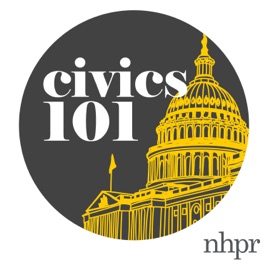
4.2
2314
224
Civics 101
NHPR

5
201
23
F-14 Tomcast
BVR Productions
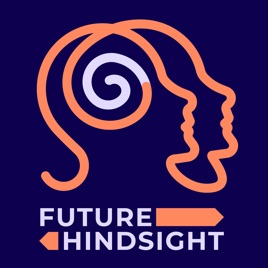
4.8
154
299
Future Hindsight
Future Hindsight
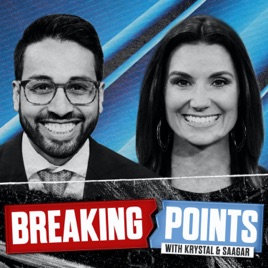
4.5
8484
701
Breaking Points with Krystal and Saagar
Breaking Points

4.7
1437
500
Macroaggressions
Charlie Robinson

4.5
7088
335
The Lincoln Project
The Lincoln Project
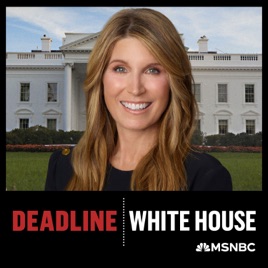
4.6
5529
19
Deadline: White House
Nicolle Wallace, MSNBC

4.7
570
72
U.S. Supreme Court Oral Arguments
Oyez

4.2
280
193
Americast
BBC Radio



